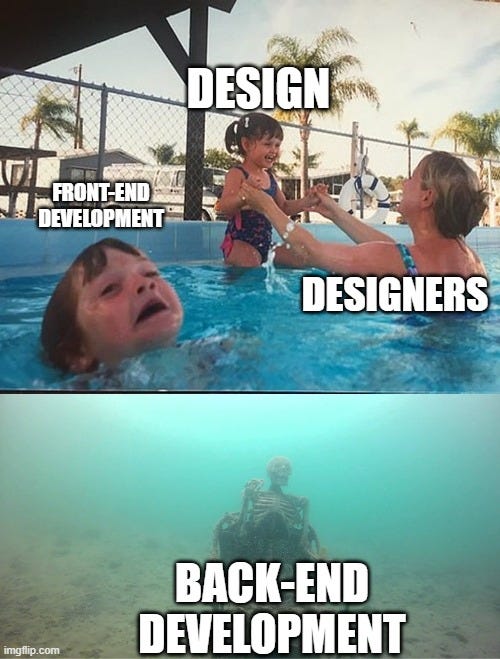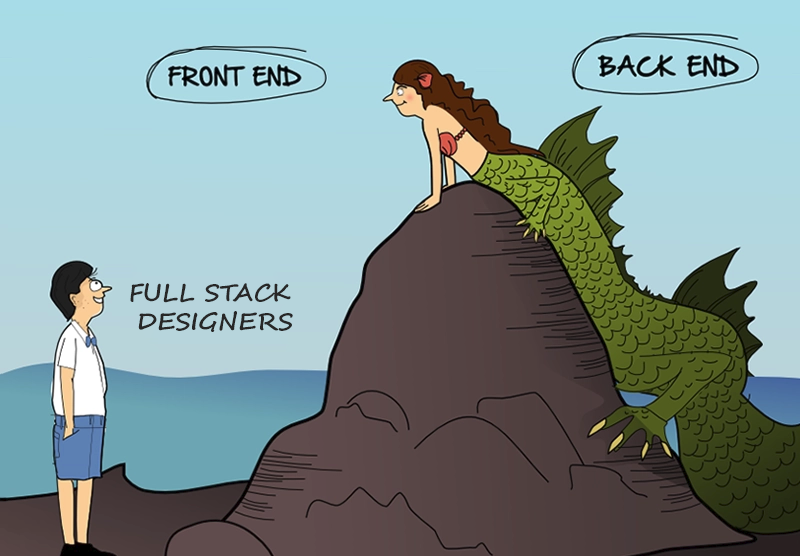

I tried coding the website I designed.
source link: https://uxplanet.org/i-tried-coding-the-website-i-designed-f554272e559e
Go to the source link to view the article. You can view the picture content, updated content and better typesetting reading experience. If the link is broken, please click the button below to view the snapshot at that time.

I tried coding the website I designed.
The ordeal of a UX designer trying to find the missing semi-colon in a wall of seemingly gibberish text.
Rewind to 2020
I remember the first time that I had seen the HTML and CSS docs of the website I had designed, I was convinced that that was the only time I’m checking under the hood of my designs. The only words I could comprehend were mentions of padding and margin, every now and then.
This was back when one of the developers was trying to explain why the designs changes are challenging for them to code. They eventually did it though and I politely declined the invitation to see how they managed to manipulate the same code to get the required result.

I had never written a line of code up until a year ago. Half of my conversations with the engineering team had me googling up terms like bootstrap, meta tags, flex.
Present
I climbed my Everest. I coded my own portfolio website that I had designed. And I intend to keep maintaining it myself for the foreseeable future. It started when my company offered a program for designers to learn the basics of development to bridge the communication gap between developers and designers.
The initial part was hard, when 4 words out of a 5-worded sentences had me googling. It got easier, understandable and somehow exciting! The thrill of changing the code and have it reflect instantly on the webpage was ridiculously addictive.
I took up the challenge to convert my portfolio to a website by designing and coding it. This took almost all of my free time during the past three months. (I will write another piece explaining the process, challenges and the results).
What if?
Some of my colleagues and designer friends enquired if they should attempt this. As a matter of fact, this is an ever-going debate if designers should learn to code. The problem with the question is its objectivity. Try asking a subjective alternative — Should I, a designer, learn how to code?
I have summed up the pros and cons that may help you make that choice. As a UX Designer..
Why you shouldn’t code your own website?
- It takes tremendous amount of time and patience.
- You would have to restrict your design ideas to fit into what you can actually code.
- You’ll be constantly juggling between designing and coding, despite your best efforts to keep it linear.
- You would regularly question your decision of choosing to code. The sunk-cost fallacy would come into play.
- There are plenty of readily available alternatives that are no-code and produce amazing results.
- In the long run, It is really difficult to keep up with the latest developments in the world of front-end while being at the top of the design game.
Why you should code your own website?
- You’ll understand design from a developer’s perspective. This is specially great, if you are working in a small team or have a lot of interactions with developers.
- Everything will start to make sense. How Auto-layout in Figma translates to flex div in CSS; Challenges with responsive websites; Accessibility issues.
- You can inspect any live website and understand what went into making it.
- You get to experience the web in its truest form.
- The flex of having designed and coded a website.
- The idea is to not replace the developers of your team, rather eliminate the friction of handoff. Your designs will get fewer red flags from developers.
Still on the fence? I would recommend to take the leap if you’re genuinely curious about front-end development and don’t get disheartened easily.

Recommend
About Joyk
Aggregate valuable and interesting links.
Joyk means Joy of geeK